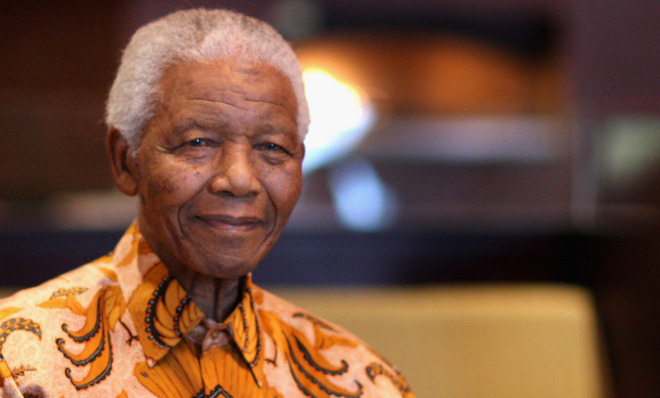Our brothers' keepers
The radical message of Nelson Mandela and Pope Francis


A free daily email with the biggest news stories of the day – and the best features from TheWeek.com
You are now subscribed
Your newsletter sign-up was successful
Two years after leaving the jail cell where he spent 27 years, Nelson Mandela shrewdly decided to give up on communism. Seizing wealth and property, he realized, would not eradicate the poverty of black South Africans, so he embraced a market economy. Yet two decades later, South Africa's black majority remains mired in poverty and hopelessness, with the average white family earning six times what a black family does. Capitalism is wonderfully effective at generating wealth, but it often falls short in spreading it around. This same conundrum haunts the U.S., where globalization, technology, and other modern economic forces have opened a widening chasm between the wealthy and everyone else. Labor itself has been devalued; a willingness to work hard no longer guarantees a place in the middle class, or even a job.
In a system that produces big winners and lots of losers, what becomes of the losers? Now that capitalism has won even in China, that question will define the coming decades not just in the U.S. but also throughout the world. There is no simple political solution to inequality; it cannot be taxed or legislated away. But nothing will change without a real recognition that the suffering of "the losers" matters. Pope Francis has caused a stir by emphasizing that point, scoffing at trickle-down theory as a cruel fiction, and decrying "the idolatry of money" and "the globalization of indifference." Francis insists that we honor the dignity and worth of every individual, as Mandela did before him. "Overcoming poverty is not a task of charity," Mandela once said. "It is an act of justice." That's a radical message, and has been for 2,000 years.
A free daily email with the biggest news stories of the day – and the best features from TheWeek.com
The Week
Escape your echo chamber. Get the facts behind the news, plus analysis from multiple perspectives.

Sign up for The Week's Free Newsletters
From our morning news briefing to a weekly Good News Newsletter, get the best of The Week delivered directly to your inbox.
From our morning news briefing to a weekly Good News Newsletter, get the best of The Week delivered directly to your inbox.
William Falk is editor-in-chief of The Week, and has held that role since the magazine's first issue in 2001. He has previously been a reporter, columnist, and editor at the Gannett Westchester Newspapers and at Newsday, where he was part of two reporting teams that won Pulitzer Prizes.
-
 The ‘ravenous’ demand for Cornish minerals
The ‘ravenous’ demand for Cornish mineralsUnder the Radar Growing need for critical minerals to power tech has intensified ‘appetite’ for lithium, which could be a ‘huge boon’ for local economy
-
 Why are election experts taking Trump’s midterm threats seriously?
Why are election experts taking Trump’s midterm threats seriously?IN THE SPOTLIGHT As the president muses about polling place deployments and a centralized electoral system aimed at one-party control, lawmakers are taking this administration at its word
-
 ‘Restaurateurs have become millionaires’
‘Restaurateurs have become millionaires’Instant Opinion Opinion, comment and editorials of the day
